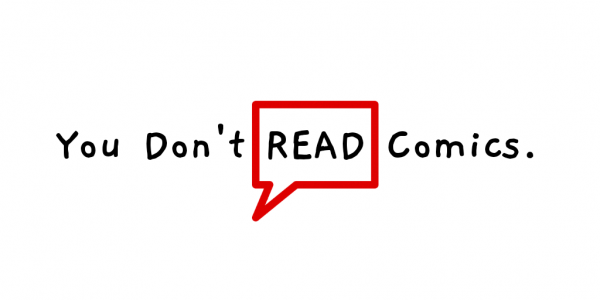Not All Robots #5 // Review
Robots have been running everything for a long time. Human-looking “mandroids” are starting to take over. Traditional robots are becoming obsolete. Now they’re switching into homicidally disgruntled mode. Things are going to get ugly in the penultimate issue of Not All Robots. Writer Mark Russell closes in on the ending of the six-issue mini-series with the aid of artist Mike Deodato Jr. The strangely dark satire has its moments. Still, deeper complexities and statements on the nature of society and automation continue to evade Russell’s otherwise appealing script. It’s light comedy. It’s dark comedy. There is some level of serious drama in and within the panels, but it feels strangely imbalanced.
Snowball has just been laid-off. Now the family that he’s been in charge of looking after is positively terrified of him. The home in which he resides is a microcosm echoing larger issues present throughout a society where charismatic Mandroids are taking over jobs held by classically robot-looking robots. Farewell magnets from an employer might seem like a nice gesture, but not in a world where superhuman mechs are rapidly losing the control they’d had for so long. The final glitch is coming.
Russell has some fiercely smart moments in the comedy, which do a brilliant job of reflecting the world at large. A large gathering of employees is congratulated for helping themselves out of a job. Termination emails follow shortly thereafter. Humans are being attacked by mobs of angry, metal mid-20th century sci-fi robots. It’s dark dark comedy, but it lacks a deeper interface with current society. Advanced automation in an age of late-stage capitalism is a very, very sophisticated issue that really deserves a deeper look than Russell is giving it here. It’s fun, but it lacks the kind of depth that could make it groundbreaking.
Deodato’s grasp of drama is breathtaking in places. He holds moments beautifully, but action feels more than a little stiff. There’s a dark, comedic horror resonating from the kinetics of a story that involves a metal robot riot. Deodato fails to capture the intensity of the comedy in that horror. He’s at his best in tight, taut moments of real, human emotion that feel almost antithetical to the lightly dark comedy that Russell is handing him. As a result, the art feels ill-suited to the style and tone of Russell’s script.
It’s possible that the same exact series could work much better if it was handled by a different pairing of creative talent. If Russell could have an artist with a bit more dark whimsy like Riley Rossmo or Jorge Corona, he could have the rubbery oddity that he’s looking for. If Deodato could tackle the exact same story with a darker, more serious script by someone like Grant Morrison or James Tynion IV, he could be telling the exact same story in a way that would fit his art far better.










